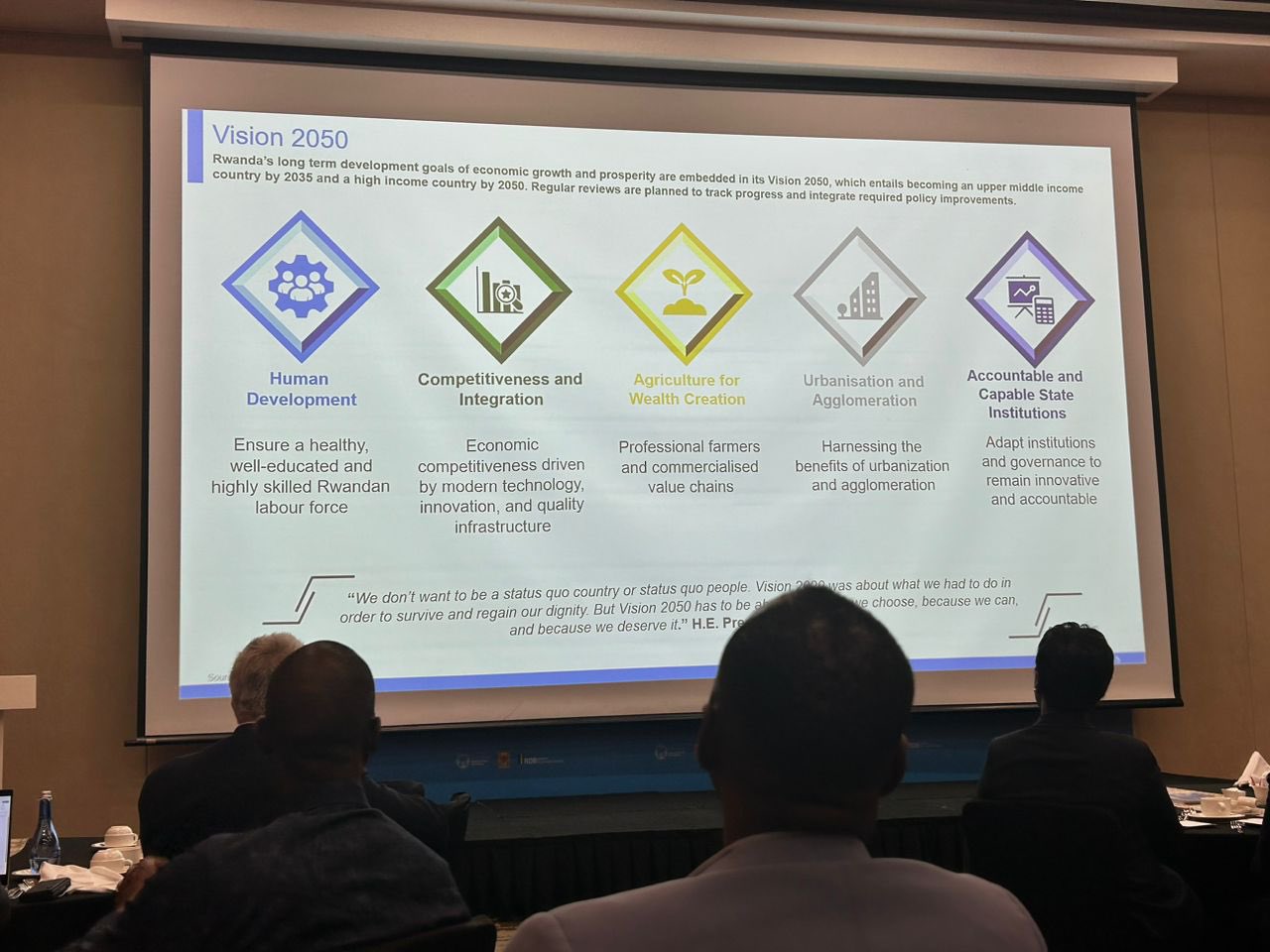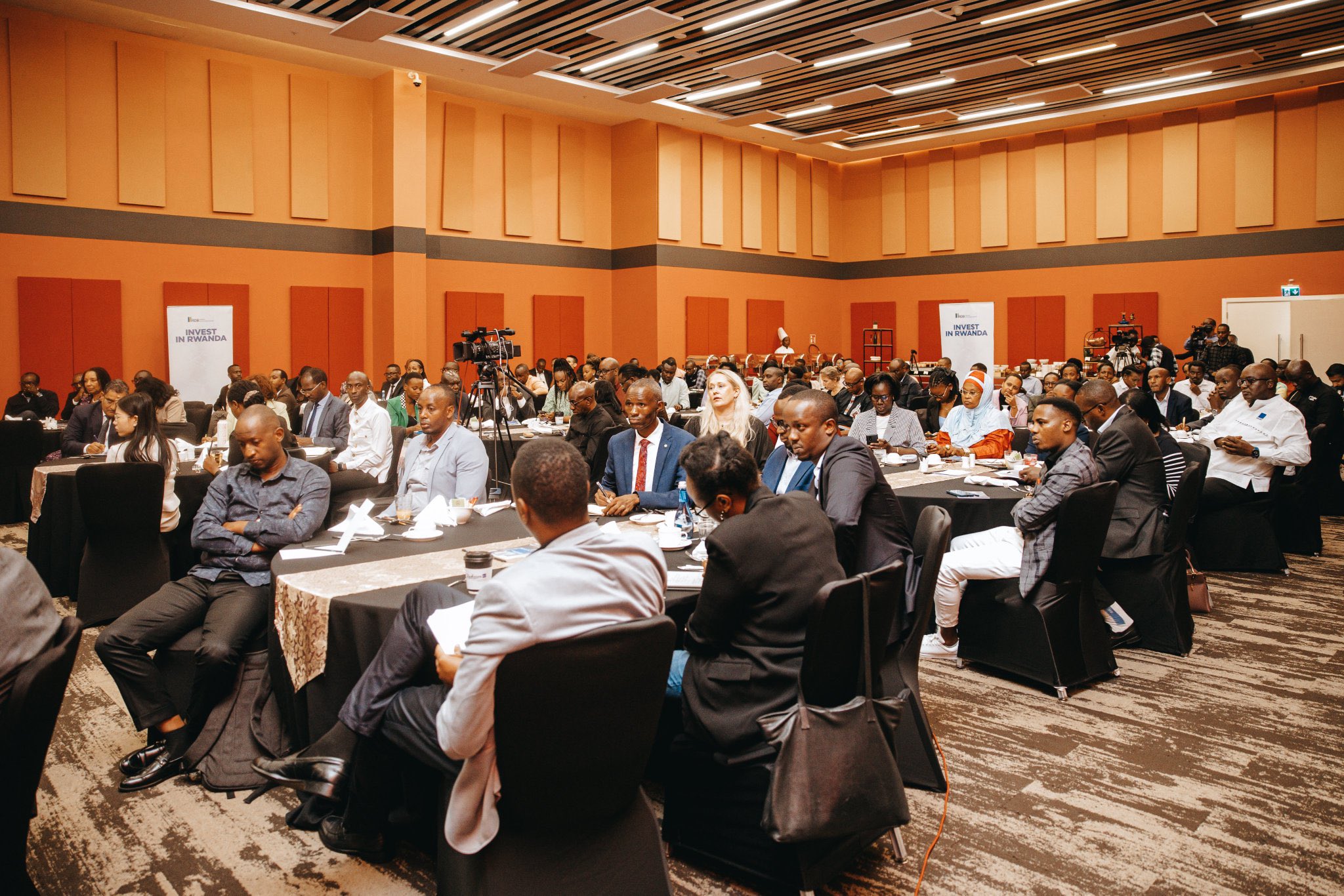“How can we get every business in Rwanda to commit to reinvesting 10-20% of their annual growth?” This thought-provoking question from Francis Gatare, CEO of the Rwanda Development Board (RDB), set the tone for the CEO Forum held at the Kigali Convention Center. The event brought together private sector leaders, government officials, and stakeholders to tackle the ambitious targets under the Second National Strategy for Transformation (NST2) and explore the critical role of business growth in achieving them.
Held at Kigali’s iconic convention center, the forum stimulated candid and solution-oriented conversations about how the private sector and government can collaborate to create a thriving business environment. Participating in the discussions alongside Gatare were Minister of Trade and Industry Prudence Sebahizi and Private Sector Federation (PSF) Chairperson Jeanne Françoise Mubiligi. Together, they engaged with business leaders to identify challenges, propose solutions, and outline actionable steps for fostering economic growth.
Minister Sebahizi laid out Rwanda’s ambitious economic goals: doubling exports from US$3.5 billion to US$7.3 billion and increasing investments from US$2.2 billion to US$4.6 billion by 2029. Highlighting the private sector’s vital role, he urged businesses to seize opportunities presented by regional economic blocs and agreements such as the African Continental Free Trade Area (AfCFTA). “Boosting local production and capitalizing on expanded market access is critical to meeting these targets,” he emphasized. He further assured private sector leaders of the government’s commitment to collaboration, saying, “We’re here to listen to you and use this platform for continuous engagement between the Government and the Private Sector.”
PSF Chairperson Mubiligi echoed the need for collaboration and emphasized the importance of addressing challenges such as access to finance, market competitiveness, and the need for innovation to remain resilient in a rapidly evolving global economy.
The discussions reflected a shared commitment to Rwanda’s development agenda, with a focus on actionable strategies. Gatare highlighted reinvestment as a key driver of growth. “If every business in Rwanda commits to reinvesting 10-20% of their annual growth, we could exceed our investment targets by over 50%. The quickest way to grow our economy is through business growth, expansion, and reinvestment,” he said.
The forum also served as an opportunity for stakeholders such as the East African Business Council (EABC) to emphasize the need for continuous engagement between the government and the private sector. This partnership is essential not only for achieving NST2 targets but also for positioning Rwanda as a leading investment destination in the region.
As the forum concluded, participants left with a renewed sense of purpose and collaboration. With private sector leaders, government officials, and stakeholders working together, Rwanda is poised to achieve its ambitious economic transformation goals and solidify its place as a regional economic powerhouse.

